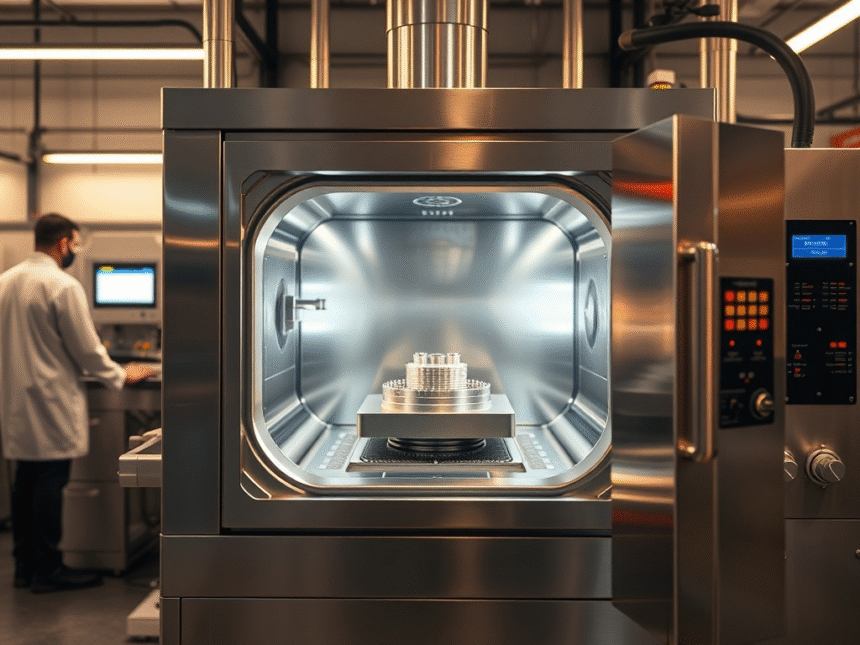In manufacturing processes where temperature and cleanliness are critical, the right equipment can be the deciding factor between success and costly waste. For industries working with sensitive or reactive materials, a vacuum oven offers the control and precision needed to maintain quality throughout production. By removing atmospheric interference, these ovens create an environment where delicate components can be processed without the risk of contamination or oxidation.
This capability makes them essential in sectors such as electronics, aerospace, pharmaceuticals, and advanced materials, where even the smallest deviation can impact performance or safety.
Why Atmosphere Control is Essential
Air contains both oxygen and moisture, which can trigger chemical reactions during heating. In metal processing, this can cause oxidation and scaling, while in electronics, it can degrade components or compromise coatings. For certain chemical processes, moisture in the air can even alter the outcome entirely.
By operating under reduced pressure, vacuum ovens remove these risks. They can also be paired with inert gases such as nitrogen or argon, creating a stable environment tailored to the needs of the material. This level of control ensures consistent results, batch after batch, and supports stringent quality requirements.
Uniformity and Precision in Thermal Processing
Consistency is a challenge in any thermal process, especially when dealing with varied shapes, sizes, or material properties. In conventional ovens, airflow and heat distribution can lead to uneven results. Vacuum ovens solve this by ensuring heat transfer is more uniform, eliminating the hot and cold spots that can occur in open-air systems.
Uniform heating not only improves product quality but also reduces the likelihood of rework or rejection. This is particularly important in high-value manufacturing, where a single faulty batch can have significant financial implications.
Protecting Material Integrity
Some materials are highly sensitive to temperature changes. Polymers, composites, and certain adhesives can be damaged if heated too quickly or too unevenly. Vacuum ovens allow for precise control over ramp-up and cool-down rates, protecting the structural and chemical integrity of the product.
For processes involving solvent evaporation or degassing, the reduced pressure environment also speeds up removal while allowing lower processing temperatures. This minimises thermal stress and helps maintain the desired properties of the finished product.
Efficiency and Cost Considerations
While vacuum ovens require a higher initial investment than conventional systems, they often deliver long-term cost savings. Faster processing times, reduced waste, and improved consistency all contribute to better overall efficiency. Energy consumption can also be lower, as the absence of air allows for heating at reduced temperatures without compromising results.
When production quality, safety, and efficiency are priorities, the benefits of a controlled atmosphere far outweigh the costs. By integrating a vacuum oven into the workflow, manufacturers can achieve higher yields, reduce defects, and ensure their processes meet the most demanding industry standards.


